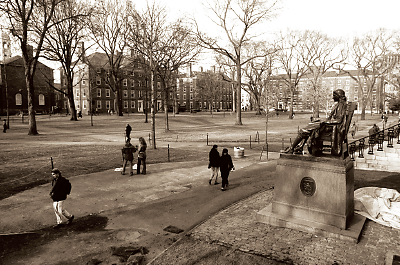Surveys of college admissions officers 50 years ago revealed that many application forms often inquired about a high school student’s emotional problems or psychiatric treatment, according to two articles in the February and March 1967 issues of Psychiatric News. Some went so far as to ask about a history of mental illness in the applicant’s family.
The issue arose because in 1966, Max Siegel, Ph.D., a psychologist and associate dean of students at Brooklyn College, had argued in the New York Times that colleges were discriminating against former mental patients.
Intrigued by the question, Psychiatric News assistant editor Gail Dearing then asked 100 college psychiatrists for their opinions; 61 responded.
“[M]ore than two-thirds reported that in their experience, usually extensive, with college admission committees, they have not observed out-and-out prejudice against individuals who have been, or are being, treated for emotional problems,” wrote Dearing.
Sometimes, she reported, colleges were likely to ask for more information from parents or therapists or request an evaluation from their own student health service psychiatrists to “determine whether the student promises to be able to function adequately and withstand the pressures of college. When asked how they use this information in reaching a decision, one college said, ‘We make inspired guesses.’ ”
Other university health personnel went even further in discounting the value of such information.
“People with obvious signs of emotional conflict may at times do very well in college,” Dearing quoted Dana Farnsworth, M.D., a psychiatrist and director of Harvard University Health Services from 1954 to 1971. “If we exclude all who have potential emotional disorders, we would keep out practically all applicants.”
Indeed, a Harvard study then under way in 1967 indicated that students with previously treated psychiatric problems did just as well at the university as a control group.
In October 1966, the APA Assembly approved a measure deploring inquiries about an applicant’s psychiatric history.
Of course, both colleges and psychiatry have changed since then. For example, such questions would not appear on today’s admissions applications, said Michelle Mott, a spokesperson for the American Association of Collegiate Registrars and Admissions Officers in Washington, D.C.
“It seems that doing so could be equated with asking a student to disclose health information, and that might not be permissible,” Mott told Psychiatric News. “While there seems to be an increase in students identifying their mental health issues on campuses, and those students are likely bringing those issues with them, it is not common practice to gather that information through the admissions process.”
“It’s a very different world today,” agreed Jerald Kay, M.D., a professor emeritus of psychiatry in the Boonshoft School of Medicine at Wright State University in Dayton, Ohio, and co-editor with Victor Schwartz, M.D., of Mental Health Care in the College Community (Wiley, 2010). For one thing, there is much more openness at colleges (and society in general) about mental illness.
More is known today about the epidemiology of mental illness in young people, said Kay in an interview.
“We have many more students matriculating with some sort of disorder, but we also have a better understanding of psychopharmacology and psychotherapy,” he said. “Our challenge now is to see that all the people who need help get it.”
To that end, campus mental health services have shifted away from a counseling model, said Kay. Now they are more like community mental health centers, providing not only counseling but ready to offer crisis intervention, group therapy, or even hospitalization when necessary.
At the same time, there are also new problems to cope with.
“We have a better handle on substance abuse now, although everyone is struggling with what to do about alcohol,” he said. “Binge drinking is a big problem on campuses.”
Dearing reported on ways to clear a path to college for students with a history of psychiatric or emotional problems.
“Paramount among the solutions suggested is the need to educate college admissions officials,” wrote Dearing. “They need to know what mental illness is and the complex forms it may take, and to be convinced that many people do recover from episodes which led them to consult a psychiatrist, particularly adolescents experiencing ‘health’ situational adjustment reactions.” ■
An abstract of “College Mental Health: A System in Transition” by Victor Schwartz, M.D., and Jerald Kay, M.D., can be accessed
here.

